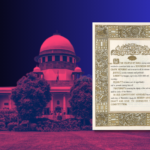In a bid to tackle the growing air pollution in Delhi, the Supreme Court on November 22 expressed its dissatisfaction with the enforcement of a truck ban imposed under the Commission for Air Quality Management’s GRAP-IV restrictions. The Court appointed 13 lawyers from the Bar as court commissioners to inspect entry points across the national capital and ensure compliance with the truck entry ban.
The GRAP-IV measures, aimed at reducing air pollution in Delhi-NCR, prohibit the entry of trucks into the city. However, the bench, consisting of Justice Abhay S. Oka and Justice Augustine George Masih, raised concerns about the inadequate enforcement. “So far as compliance is concerned, we are not satisfied,” the Court remarked, highlighting that the government had not provided clear information about the presence of officers at all entry points.
According to Amicus Curiae Senior Advocate Aparajit Singh, there are 113 entry points into Delhi, but the Delhi government’s counsel only confirmed that surveillance is primarily conducted at 13 major entry points. This, the Court noted, implies that trucks are still entering through the remaining 100 unmanned points, despite the truck ban.
In response, the Court ordered the Delhi Government and Delhi Police to immediately set up checkposts at all 113 entry points. The Court emphasized that the lack of enforcement at these entry points was contributing significantly to Delhi’s air pollution problem, with trucks accounting for a large portion of the pollution.
“The percentage of pollution caused by these trucks is a very large percentage,” Justice Oka said during the hearing, adding, “This is the lookout of the police and the Delhi government.”
The Court further observed the absence of adequate enforcement for other pollution-reducing measures such as the fireworks ban and construction restrictions. “There is no implementation of fireworks ban, construction nothing was being implemented. Somebody has to be answerable,” Justice Oka remarked.
The bench will reconvene on November 25 to decide whether the GRAP-IV restrictions should remain in effect based on the state of enforcement and air quality in the region.








